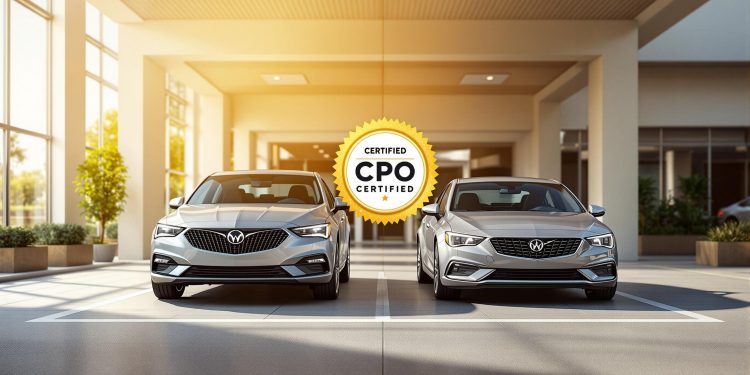When deciding between Certified Pre-Owned (CPO) cars and regular used cars, CPO vehicles typically retain value better due to warranties, inspections, and lower depreciation. However, they cost about 4.1% more upfront. Regular used cars are cheaper but come with higher risks and faster depreciation.
Key Differences:
- CPO Cars: Manufacturer-backed warranties, thorough inspections, slower depreciation, better financing rates.
- Regular Used Cars: Lower upfront cost, limited warranties, faster depreciation, higher loan interest rates.
Quick Comparison Table:
| Factor | CPO Cars | Regular Used Cars |
|---|---|---|
| Initial Cost | Higher upfront price | Lower upfront cost |
| Warranty | Manufacturer-backed | Limited or none |
| Depreciation | Slower | Faster |
| Financing Rates | Lower (e.g., 4-5%) | Higher (e.g., 12.01%) |
| Inspection | Comprehensive multi-point | Varies by seller |
| Resale Value | Higher and more predictable | Less predictable |
For South African buyers, platforms like AUTO24.co.za help compare both options with verified listings. Choose CPO for reliability and resale value or regular used cars for affordability.
Differences Between CPO Cars and Regular Used Cars
Inspection and Warranty Coverage
CPO (Certified Pre-Owned) vehicles go through a detailed multipoint inspection conducted by certified technicians. This process includes reviewing the vehicle’s history and making any necessary repairs or updates to ensure quality and reliability [1]. These inspections help maintain the dependability and resale value of CPO cars.
CPO warranties, which are backed by the manufacturer, often come with extras like roadside assistance. This provides added assurance for buyers. On the other hand, regular used cars are usually sold "as-is" or with very limited warranty options.
Financing and Payment Options
CPO cars often come with lower interest rates, which can mean noticeable savings over the course of a loan. Because these programs are supported by automakers, they typically offer better financing terms than those available for regular used cars. For example, on a R300,000 loan:
| Loan Type | Interest Rate | Monthly Payment | Total Interest Savings |
|---|---|---|---|
| Regular Used Car | 6% | – | – |
| CPO Vehicle | 5% | Lower | R8,310 |
| CPO Vehicle | 4% | Lowest | R16,485 |
These financial advantages, combined with the stricter eligibility requirements for CPO vehicles, set them apart from standard used cars [1].
Vehicle Age and Condition Requirements
CPO cars must meet specific standards, such as being under 5-6 years old, having fewer than 120,000 km, and showing a clean history report. They must also be in excellent mechanical condition. These requirements ensure that CPO vehicles hold their value better than regular used cars [1].
Additionally, only brand-specific dealerships are authorized to sell CPO vehicles. This ensures that manufacturer guidelines are consistently followed, contributing to the long-term value and quality of certified cars [3].
What Affects Resale Value?
Brand and Model Demand
The reputation of a brand plays a big role in a vehicle’s resale value. Brands known for reliability and durability tend to hold their value better over time [2]. This becomes even more noticeable when comparing Certified Pre-Owned (CPO) cars to regular used cars from the same manufacturer.
Certain models, especially those packed with modern safety features or the latest tech, tend to command higher resale prices [2]. This is particularly true in the CPO market, where newer models with up-to-date technology are more common.
Maintenance and Ownership Records
Keeping a detailed maintenance history can make a big difference in resale value, and for CPO vehicles, this is non-negotiable [2]. These cars go through rigorous quality checks and come with complete maintenance documentation, making them more appealing to buyers. Thanks to their clean histories, verified maintenance, and lower mileage, CPO vehicles generally maintain higher resale value than standard used cars.
Market and Economic Changes
Economic factors and market trends can cause shifts in resale values. For instance, when fuel prices rise, fuel-efficient vehicles tend to retain their value better [4]. In South Africa, changing fuel prices and preferences for SUVs or compact cars based on regional needs also influence resale trends.
Regional tastes matter too – compact cars are often in higher demand in cities, while SUVs are more popular in rural areas. The release of new models can also impact the value of older ones, though CPO vehicles are less affected due to their manufacturer-backed certifications and warranties [4].
These factors highlight why CPO vehicles often outperform regular used cars in maintaining long-term value.
Comparing Resale Value: CPO vs Regular Used Cars
Why CPO Cars Retain Value Better
CPO (Certified Pre-Owned) cars tend to hold their value longer because of the added assurances they come with. These vehicles go through strict certification programs, which justify their higher price tags and help maintain their resale value over time.
Features like manufacturer-backed warranties, detailed inspections, and complete maintenance records give buyers peace of mind. Knowing that major repairs are less likely makes CPO cars appealing to future buyers, helping them retain their worth [1].
Why Regular Used Cars Depreciate Faster
Regular used cars often lose value more quickly due to the lack of manufacturer certification and warranties. Buyers are usually wary of potential repair costs, as these cars may not have undergone consistent or thorough inspections [3].
Incomplete documentation and varying inspection quality can lead to hidden issues, which further accelerate their depreciation compared to certified vehicles [3].
Side-by-Side Comparison: CPO vs Regular Used Cars
| Factor | CPO Cars | Regular Used Cars |
|---|---|---|
| Initial Cost | Higher upfront price | Lower upfront cost |
| Quality Assurance | Backed by manufacturer warranty and checks | Limited or no guarantees |
| Documentation | Full maintenance history | Often incomplete |
| Long-term Value Retention | More stable and predictable | Less predictable |
| Inspection Standards | Comprehensive multi-point inspection | Varies significantly by seller |
For South African buyers, platforms like AUTO24.co.za provide access to both CPO and regular used cars. The added reliability of certified vehicles is especially valuable in South Africa, where factors like maintenance costs and vehicle dependability play a big role in determining resale value [2][4].
Knowing these distinctions can help buyers make smarter choices, particularly in South Africa’s automotive landscape, where market conditions and preferences differ from other regions.
sbb-itb-09752ea
Tips for South African Car Buyers
Check Resale Trends Before Buying
Understanding resale trends is crucial when deciding between certified pre-owned (CPO) and regular used cars in South Africa. A car’s brand reputation plays a big role in how well it holds its value in the local market [2][4].
To track price trends and demand, rely on trusted automotive resources like ImotoNews South Africa (imotonews.co.za). Here are some factors that impact resale value:
| Factor | Impact on Resale Value |
|---|---|
| Brand Reliability | Brands like Toyota and Volkswagen tend to hold their value well |
| Service History | Verified maintenance records improve resale prospects |
| Market Demand | Popular models lose value at a slower rate |
| Vehicle Age | Cars aged 3–5 years often retain value the best |
Keeping detailed maintenance records is especially important for regular used cars without manufacturer certification. Platforms like AUTO24.co.za make this easier by offering verified listings and pricing that aligns with the market.
Use Trusted Platforms Like AUTO24.co.za

Selecting a reliable platform is key when buying a used car in South Africa. AUTO24.co.za ensures transparency, fair pricing, and a secure buying process. They conduct thorough vehicle inspections and provide clear documentation, with locations available in Johannesburg (Gauteng) and Cape Town. Here’s what they offer:
- Quality Assurance: Every car undergoes a detailed inspection.
- Transparent Pricing: Prices reflect market trends and include proper documentation.
- Wide Selection: Options include both CPO and regular used vehicles.
- Secure Transactions: Buyers get full documentation and a protected purchasing process.
While CPO vehicles typically come with a 4.1% price premium, they often offer better resale value [1]. If you’re using AUTO24.co.za, focus on cars with verified service histories and complete documentation. For regular used cars, consider getting an independent assessment to spot any issues that might affect resale value [3].
Are Certified Pre-Owned (CPO) Cars Better Than Used (Non-CPO) Cars?
Conclusion
When looking at resale value, certified pre-owned (CPO) vehicles generally hold their worth better than regular used cars. This is largely due to their warranty coverage and detailed inspection processes. That said, the decision between the two comes down to what matters most to the buyer – whether it’s peace of mind or sticking to a tighter budget.
For South African buyers, the choice often depends on personal priorities. CPO vehicles come with manufacturer-backed warranties and inspections, offering added assurance. On the other hand, regular used cars can be a more affordable option for those willing to conduct their own checks.
To maintain resale value, proper documentation and regular maintenance are essential, regardless of your choice. Factors like brand reputation and market demand also heavily influence a car’s value over time [2][4]. In South Africa, brands like Toyota and Volkswagen are known for retaining value well.
For transparent pricing and verified car histories in Johannesburg and Cape Town, check out AUTO24.co.za. If you’re looking for updates on market trends and resale value insights, ImotoNews South Africa (imotonews.co.za) is a great resource.
Fuel prices also play a role in resale values. Fuel-efficient cars often gain appeal when fuel prices rise, while larger vehicles might see increased demand during times of lower fuel costs. Keeping an eye on these trends can help you make a smarter purchase.
Related Blog Posts
- Factors That Influence Used Car Prices in South Africa
- New vs Used Cars: Key Pros and Cons
- Used Cars vs New Cars: Cost Breakdown
- 10 Tips to Avoid Car Scams in South Africa





